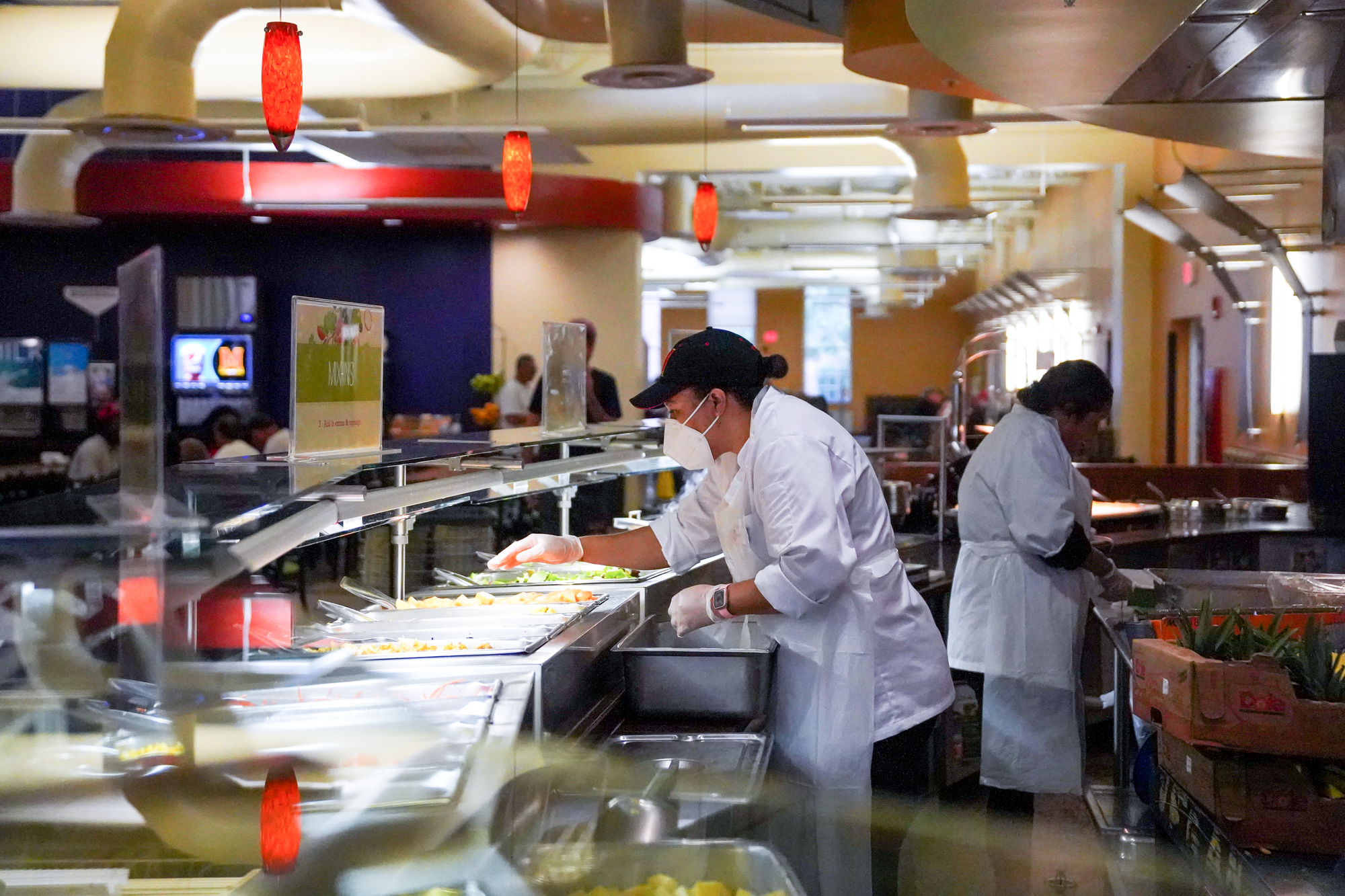Views expressed in opinion columns are the author’s own.
To Muslims, the month of Ramadan is about many things: faith, family, community, reflection, charity and worship. But for many Muslim students such as myself, Ramadan also becomes about enduring the fatigue that comes with being a full-time student and managing all of my obligations — all while fasting from sunrise to sunset.
All that physical activity on an empty stomach between classes, prayer times and trying to get a meal in time to break our fast can become draining, to say the least.
With this year’s Ramadan approaching next month, I’m dreading spending the month away from my family. Not being able to break my fast with them every day can make the month, which is responsible for some of my family’s fondest memories together, feel quite lonely.
The University of Maryland, however, has the ability to help Muslim students meet their academic and spiritual needs with fewer challenges, while still encouraging community in the process.
This university needs to provide better accommodations for students fasting during Ramadan than what it currently offers. Namely, this university must provide Muslim students with more iftars — the meal that ends the fast at sunset — extend dining hall hours past 8 p.m. or 9 p.m., and designate temporary places for students to pray across the campus apart from the Musallah.
Through continued efforts, this university has shown a commitment to supporting and giving the Muslim students on this campus an environment to be able to practice their faith freely. In 2017, renovations of an old locker room began to turn it into a prayer room to create a community space for Muslim students on this campus. Just last year, an ablution room was created in Stamp Student Union to help facilitate students’ prayer.
However, the six iftars this university provided last year are not enough. The University of Michigan, another Big Ten School, has had daily iftars for students throughout the month, with catered meals provided Mondays through Thursdays and potlucks scheduled for Fridays through Sundays. At this university, more iftars need to be provided, whether through Stamp or other administrative bodies because frankly, what’s being provided is just not enough.
Having more frequent iftars will better accommodate commuting students, who have to manage getting home in time to break fast, staying up late into the night worshiping, studying and commuting again in the mornings.
For either international or out-of-state students living on the campus, being unfamiliar with the area and potentially having little transportation access means they have very limited access to high-quality halal certified food throughout the month. For those with no community or family near them, they are limited to whatever services this university offers them.
If last year’s model was to provide six iftars during the month, then this university should strive to increase that number to 12 this year, and work to continue gradually increasing that amount over the next few years. If funds are low, some iftars could require a small admission fee to help offset the cost. However, these fees should be small and student-oriented, as this financial burden should not fall significantly on students.
In addition to providing more iftars, dining hall services need to adjust their hours in accordance with the early pre-fast meals, suhoor and iftars. This wouldn’t even require having the entire dining hall open, but would rather require a few food stands that could be accessed by fasting students. While the dining hall does provide carry-out options of meals for students to pick up to start and break their fasts with, if students have classes or obligations that go past 9 p.m., they won’t be able to access dining halls.
One could argue that students might be able to carry out their fast-breaking meals earlier in the day, suggesting the early dining hall closure is insignificant. However, for students who’ve grown up with fond memories of Ramadan, whose practices center around charity and the community — with warm meals around the table, sharing with their friends and family — eating a cold, stale meal after spending the day fasting only takes away from the festivities of the month.
Improving the accommodations this university provides can further come in the form of providing temporarily designated spaces for students to pray. By designating classrooms in buildings that are spaced across the campus for students to pray in, students won’t have to rush to make it to the Musallah at Cole Field House for three to four prayers a day.
Investment like this would save many of us the awkwardness of trying to cram in a prayer in the corner of a hallway outside one of our classrooms — which I’ve had to do more than once.
As my friends and I watch Ramadan approach, we experience emotions ranging from excitement to uncertainty. I am excited to renew my spiritual journey and connection to my faith. However, I am uncertain over how I will navigate my busy schedule and stay motivated to keep up with both my academics and spirituality.
It is this uncertainty that the university has the power to overcome. By providing more iftars and spaces to pray, the university will show its commitment to its Muslim students during Ramadan.
Imaan Shikoh is a sophomore public policy major. She can be reached at ishikoh@terpmail.umd.edu.



